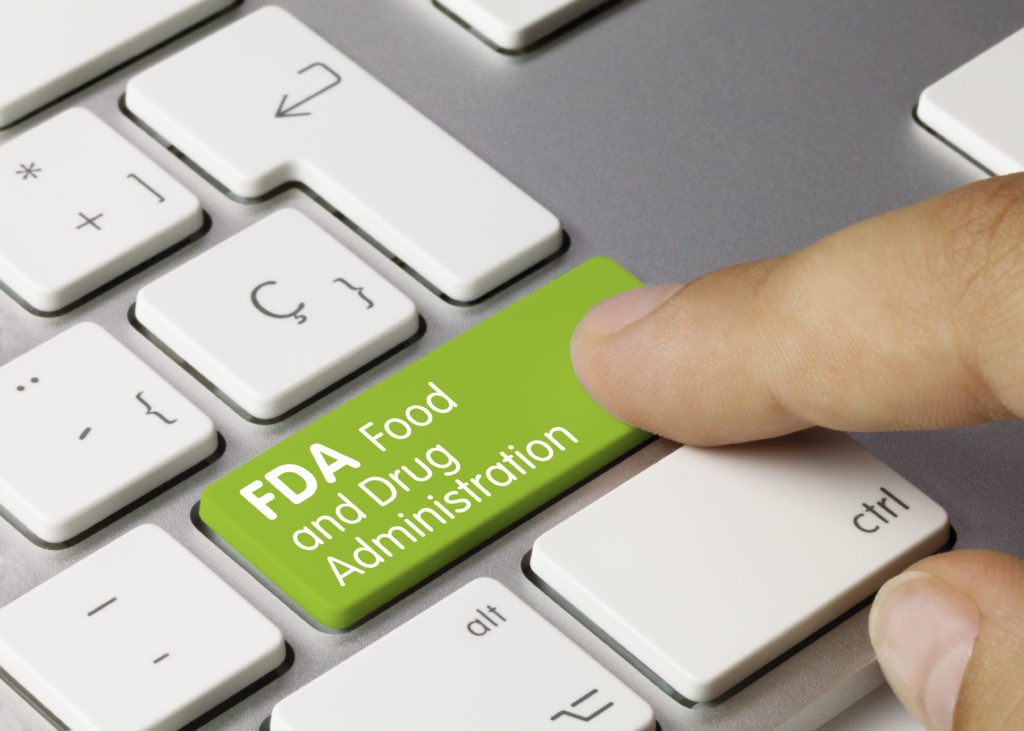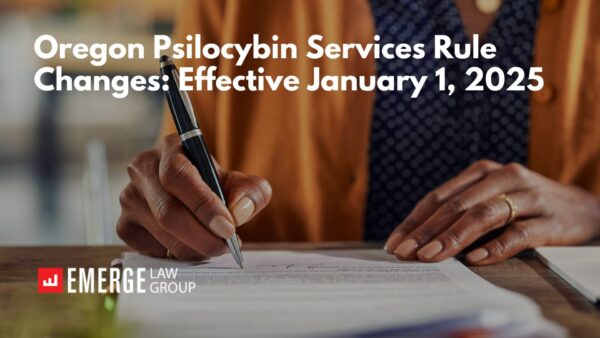Happy New Year from Emerge! Beyond the usual holiday food, friends, family, and commerce, this has also been a unique time for the hemp industry. Shortly after our last post about the 2018 Farm Bill (the “Farm Bill”) and its key hemp provisions, on December 20, 2018, the president signed the bill into law. This second post in our “Farm Bill Series” discusses the role of the federal Food and Drug Administration (the “FDA”) in the post-Farm Bill world.
Prior to the Farm Bill’s enactment, the hemp industry primarily concerned itself with the Controlled Substances Act (the “CSA”) and whether the 2014 Farm Bill truly “legalized” interstate commerce in hemp and hemp-derived CBD produced in 2014 Farm Bill-compliant states. Until recently, we believed that Oregon’s hemp regime did not comply with the 2014 Farm Bill because it lacked a robust research component. But no definitive court opinion or binding legal document clarifies which states comply or whether the 2014 Farm Bill allows for sales of hemp across state lines. Against this backdrop of uncertainty, few hemp stakeholders gave serious thought to the FDA.
The FDA has maintained since at least 2015 that CBD is a “drug” requiring FDA approval before it can be marketed to treat any medical condition or be sold as a “dietary supplement” and that CBD cannot be added to food. Over the last four years, the FDA has sent letters to various CBD product manufacturers warning that their products violate the Food, Drug, and Cosmetic Act (the “FDCA”) for one or more of the above reasons. Because the FDA limited its enforcement actions to these letters, few in the industry batted an eyelash.
With the expected increase in commercial hemp activity following the Farm Bill’s passage, however, this may change. Promptly after the Farm Bill passed, the FDA commissioner issued a press announcement reiterating the FDA’s position on hemp (the “Statement”). For the first time, the FDA acknowledged the widespread public interest in CBD products and emphasized its preparedness to take enforcement actions against CBD businesses that violate the FDCA.
In the Statement, the FDA acknowledges that hemp is no longer a federally illegal substance (presumably because it has been removed from the CSA). However, the Statement also emphasizes the FDA’s mission to protect patients and consumers from public health dangers, including those allegedly posed by hemp and CBD products.
Considering the FDA’s stated commitment to continued enforcement, anyone entering or already participating in the hemp or CBD industry should know the following key FDA positions:
1. Food Ingredient – The FDA continues to prohibit the use of CBD as an ingredient in food (including beverages).
2. Health Claims – Under the FDCA, a product that is marketed to treat a medical condition or contain therapeutic properties is a “drug.” As such, the FDA must approve such products for their “intended use.” To date, the FDA has only approved one CBD product – Epidiolex – to treat certain specific medical conditions. Therefore, manufacturers who market any other CBD product as a medical treatment run the increased risk of FDA enforcement. This includes health claims on labels, promotional materials, websites, social media, and the like, and includes testimonials by customers.
3. Dietary Supplements – The FDA prohibits the sale of CBD or products containing CBD as “dietary supplements.”
4. Interstate Commerce – Generally, the FDCA restricts the FDA’s authority to products that are “introduced or delivered for introduction into interstate commerce.” Therefore, even with the passage of the Farm Bill (which specifically allows for interstate commerce in hemp-derived CBD), manufacturers should know that placing their products into interstate commerce adds an additional layer of risk. Note also, that under Supreme Court precedent, federal agencies, like the FDA, do have authority over purely intrastate (within state) commerce as well. Consequently, the FDA could bring enforcement actions against non-approved CBD products sold purely within a state, although the Statement and warning letters suggest that the FDA is primarily concerned with products in interstate commerce.
But there may be some light at the end of this tunnel. Although the Statement indicates that the FDA will continue to enforce its position on CBD, it also implicitly acknowledges that most CBD manufacturers can’t afford the FDA’s expensive and time-consuming approval process. The Statement implies that the FDA has the authority to allow the use of CBD in a food or as a dietary supplement despite the FDCA and that it is considering whether to pursue such a process. The FDA will also hold a public meeting to garner suggestions from interested parties on how to possibly streamline the FDA approval process for CBD.
In the meantime, we will continue to monitor developments in this rapidly evolving industry and devise strategies for our clients on how to best address issues surrounding hemp. If you have any questions about hemp, the Farm Bill, or any other legal issues in the cannabis space, don’t hesitate to call us and ask to speak with one of our regulatory compliance experts. Stay tuned for more posts on how the Farm Bill affects different aspects of the industry.





